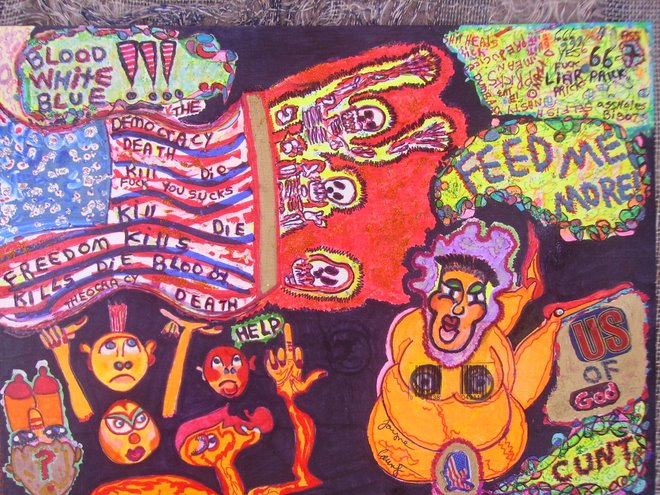THIS IS A REPOST FROM THE NY TIMES. Editorial
Three Bad Rulings
Published: June 26, 2007
The Supreme Court hit the trifecta yesterday: Three cases involving the First Amendment. Three dismaying decisions by Chief Justice John Roberts’s new conservative majority.
Chief Justice Roberts and the four others in his ascendant bloc used the next-to-last decision day of this term to reopen the political system to a new flood of special-interest money, to weaken protection of student expression and to make it harder for citizens to challenge government violations of the separation of church and state. In the process, the reconfigured court extended its noxious habit of casting aside precedents without acknowledging it — insincere judicial modesty scored by Justice Antonin Scalia in a concurring opinion.
First, campaign finance. Four years ago, a differently constituted court upheld sensible provisions of the McCain-Feingold Act designed to prevent corporations and labor unions from circumventing the ban on their spending in federal campaigns by bankrolling phony “issue ads.” These ads purport to just educate voters about a policy issue, but are really aimed at a particular candidate.
The 2003 ruling correctly found that the bogus issue ads were the functional equivalent of campaign ads and upheld the Congressional restrictions on corporate and union money. Yet the Roberts court shifted course in response to sham issue ads run on radio and TV by a group called Wisconsin Right to Life with major funding from corporations opposed to Senator Russell Feingold, the Democrat who co-authored the act.
It opened a big new loophole in time to do mischief in the 2008 elections. The exact extent of the damage is unclear. But the four dissenters were correct in warning that the court’s hazy new standard for assessing these ads is bound to invite evasion and fresh public cynicism about big money and politics.
The decision contained a lot of pious language about protecting free speech. But magnifying the voice of wealthy corporations and unions over the voice of candidates and private citizens is hardly a free speech victory. Moreover, the professed devotion to the First Amendment did not extend to allowing taxpayers to challenge White House aid to faith-based organizations as a violation of church-state separation. The controlling opinion by Justice Samuel Alito offers a cockeyed reading of precedent and flimsy distinctions between executive branch initiatives and Congressionally authorized spending to deny private citizens standing to sue. That permits the White House to escape accountability when it improperly spends tax money for religious purposes.
Nor did the court’s concern for free speech extend to actually allowing free speech in the oddball case of an Alaska student who was suspended from high school in 2002 after he unfurled a banner reading “Bong Hits 4 Jesus” while the Olympic torch passed. The ruling by Chief Justice Roberts said public officials did not violate the student’s rights by punishing him for words that promote a drug message at an off-campus event. This oblique reference to drugs hardly justifies such mangling of sound precedent and the First Amendment.
Next Article in Opinion (1 of 14) »
skip to main |
skip to sidebar

ANTI BIGOT ART

JAYNE COUNTY ART

THAT DANG OBAMA WAS BORN ON KING KONG ISLAND!!! DADBURNNIT!!!

Before It Destroys You!!!

Coming Soon To Your Neighborhood!

PUNK IS ALIVE!!!

Hitler Chased Them Out Of Germany.

Your Tongue Is A Sloppy KISS! Rich Rock Stars Fuck Off!!! (Painting by Jayne County.)

CAT GODDESS PAINTS AGAIN!

BUSTED!!!

WE ARE THE WEIMAR REPUBLIC

TOWER OF BABEL.

A REAL DEMOCRAT IS A REAL SOCIALIST!

PIMPS AND HOS!

KILL FOR AMERIKA!

HOW THE CHRISTIAN RELIGION POISONS SEXUALITY.

AMERIKA THE UGLY
http://www.myspace.com/jayneisblonde
EVIL MORMONS

ANTI BIGOT ART
GOD OF WAR

JAYNE COUNTY ART
KLANNIE MOM

THAT DANG OBAMA WAS BORN ON KING KONG ISLAND!!! DADBURNNIT!!!
Facebook Badge
DESTROY FASCISM.

Before It Destroys You!!!
AmeriKan Police State.

Coming Soon To Your Neighborhood!
PUNK MAGAZINE.

PUNK IS ALIVE!!!
WEIMAR REPUBLIC ARTISTS
Hitler Chased Them Out Of Germany.
ROCK AND ROLL FASCISTS!!!
Your Tongue Is A Sloppy KISS! Rich Rock Stars Fuck Off!!! (Painting by Jayne County.)
NEW WORLD ORDER
CAT GODDESS PAINTS AGAIN!
THE WORLD.
BUSTED!!!
PAST PRESENT AND FUTURE

WE ARE THE WEIMAR REPUBLIC
Blog Archive
-
▼
07
(80)
-
▼
Jun 2007
(14)
- Limited edition prints of *Bush 2001, The Auntie C...
- More Steps To Change AmeriKKKa into Nazi Germany.
- Archaeology - Kingdom of Kush - Egyptian Civilizat...
- Hate Groups Are Infiltrating the Military, Group A...
- AmeriKa 2007 Is Like Germany 1930
- Amerikan Christian Warmongers by Laurence M. Vance
- I Agree With Stephen S. Pearcy
- We Are The Country our forefathers warned us about!!!
- STOP THE CLASH!!!
- Rock and Roll Anti RepubliKKKan League: REPRESSION...
- REPRESSION IN THE NAME OF GOD
- FREEDOM FROM RELIGION!!!.
- REPOST!!! HARRY POTTER WINS COURT BATTLE!
- *Christian Bitch Tries To Ban Harry Potter!!!*
-
▼
Jun 2007
(14)
THE HIGHEST MOUNTAIN.

TOWER OF BABEL.
THE ONLY ONE WHO MAKES ANY SENSE AT ALL!

A REAL DEMOCRAT IS A REAL SOCIALIST!
THE REAL WASHINGTON!

PIMPS AND HOS!
The Real Reason For The War In Iraq.

KILL FOR AMERIKA!
MOSES AND THE BURNING PENIS BUSH.

HOW THE CHRISTIAN RELIGION POISONS SEXUALITY.
FASCIST STATE REVISITED

AMERIKA THE UGLY
ROCK AND ROLL ANTI REPUBLIKKKAN LEAGUE
http://www.myspace.com/jayneisblonde
